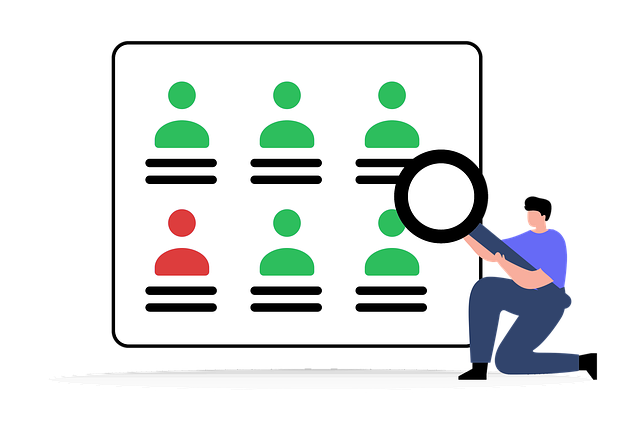Search intelligence significantly enhances digital marketing by providing deep insights into consumer search behaviors, enabling marketers to tailor their strategies with effective keywords and personalized campaigns. This advanced analytical process examines search patterns, queries, and trends across diverse platforms, leveraging sophisticated algorithms and machine learning to uncover actionable data, predict future behaviors, and optimize personalized advertising efforts. It extends beyond traditional web searches, offering nuanced understandings of user intent on e-commerce platforms, content sites, and more, impacting SEO optimization, content strategy, and paid advertising campaigns. By optimizing search ads for peak visibility and relevance to the target audience, marketers can expect improved click-through rates and conversion opportunities. Additionally, search intelligence supports competitive analysis by revealing insights into competitors' approaches, providing a strategic edge in market positioning. As search intelligence continues to evolve with features like natural language processing and predictive analytics, it becomes even more valuable for both users and businesses, offering real-time data that can guide informed decision-making in the dynamic online search environment. Understanding what is search intelligence—a multifaceted tool that extends beyond simple keyword analysis into the realm of AI-driven insights—is crucial for any organization aiming to effectively navigate the complexities of the digital marketing landscape.
navigating the digital landscape, understanding what is search intelligence becomes paramount for businesses and analysts. This article delves into the transformative power of search intelligence plugins and apps, exploring their core concepts, applications, and evolution. We’ll examine top tools that empower data-driven decision making, and provide insights on refining SEO strategies with advanced analytics. Additionally, we’ll cast a glance at future trends and innovations shaping the realm of search intelligence technology, ensuring your strategy remains at the forefront of market dynamics.
- Unveiling Search Intelligence: Core Concepts and Applications
- The Evolution of Search Intelligence Plugins and Apps
- Top Search Intelligence Tools for Data-Driven Decision Making
- Enhancing SEO Strategies with Advanced Search Intelligence Insights
- Future Trends and Innovations in Search Intelligence Technology
Unveiling Search Intelligence: Core Concepts and Applications

In the realm of digital marketing, search intelligence stands as a pivotal tool that harnesses the power of data to inform and optimize search marketing strategies. what is search intelligence? At its core, it encompasses the analysis of search patterns, queries, and behaviors across various platforms, providing insights into consumer intent and preferences. These insights enable marketers to tailor their campaigns, targeting specific keywords and phrases that resonate with their intended audience. By leveraging sophisticated algorithms and machine learning techniques, search intelligence plugins and apps can uncover trends, predict future behaviors, and deliver actionable data, allowing for more effective and personalized advertising efforts. This capability is not limited to web searches but extends to understanding the nuances within search queries on e-commerce platforms, content sites, and beyond. The application of this technology is vast, with implications for SEO optimization, content creation, and paid advertising campaigns. Marketers can optimize their search ads, ensuring they appear at optimal times and to the most receptive audiences, thereby increasing click-through rates and conversion potential. Furthermore, search intelligence aids in competitive analysis by providing insights into competitors’ strategies, offering a strategic advantage in understanding market positioning and opportunities for differentiation. As such, the integration of search intelligence plugins and apps is crucial for any organization aiming to navigate the complex landscape of online searches with precision and foresight.
The Evolution of Search Intelligence Plugins and Apps

Search intelligence has undergone a remarkable evolution, transforming from rudimentary tools into sophisticated plugins and applications that are indispensable in modern data analysis. Initially, what is search intelligence referred to simple keyword-based search functionalities that returned basic results. Over time, these tools have grown more advanced, leveraging complex algorithms to understand user intent and provide more accurate, relevant search outcomes. The integration of machine learning and artificial intelligence has further enhanced their capabilities, enabling them to predict trends, personalize search experiences, and uncover deeper insights from vast datasets.
Today’s search intelligence plugins and apps are not just about finding information; they are powerful analytics platforms that offer a comprehensive view of consumer behavior, market dynamics, and competitive landscapes. They can process large volumes of data in real-time, offering businesses actionable insights to inform decision-making. This evolution has been driven by the increasing complexity of the digital environment, where understanding context, sentiment, and user preferences is crucial for success. As search intelligence continues to advance, we can anticipate even more innovative features, from natural language processing to predictive analytics, which will further empower users and businesses alike.
Top Search Intelligence Tools for Data-Driven Decision Making

In the realm of digital marketing, search intelligence tools have become indispensable for businesses aiming to make data-driven decisions. These tools offer a deep dive into search trends, competitor analysis, and consumer behavior patterns, all of which are pivotal in crafting effective marketing strategies. What is search intelligence, you ask? It encompasses the collection, processing, and analysis of search data from various sources to uncover insights that can drive informed decision-making. With the ability to monitor keyword performance, track search volumes, and identify emerging trends, these tools enable marketers to stay ahead of the curve by understanding both the explicit and implicit needs of their target audience. Top search intelligence tools like SEMrush, Ahrefs, and Moz provide a comprehensive suite of features that allow users to analyze search queries, understand user intent, and optimize content for better visibility in search engine results pages. By leveraging these insights, businesses can tailor their SEO and content marketing efforts to align with the interests and behaviors of their audience, ultimately leading to more effective campaigns and improved ROI.
Furthermore, the integration of search intelligence into digital strategies is not just about reactive measures; it’s a proactive approach to understanding market dynamics. These tools offer real-time data that can inform decisions related to keyword selection, content creation, and even product development. For instance, by identifying high-volume, yet less competitive keywords, businesses can capture a larger share of organic traffic. Additionally, tracking competitor backlink profiles using search intelligence tools provides strategic insights into their digital presence and can reveal opportunities for partnerships or identify gaps in their strategies that your business can exploit. In essence, the integration of search intelligence into decision-making processes is a game-changer for any organization looking to navigate the complexities of the digital landscape with precision and confidence.
Enhancing SEO Strategies with Advanced Search Intelligence Insights

In today’s digital landscape, SEO strategies are pivotal for online visibility and success. To effectively enhance these strategies, leveraging advanced search intelligence insights has become non-negotiable. Search intelligence encompasses a suite of tools and technologies that provide deep insights into user behavior, search patterns, and keyword performance. By analyzing vast amounts of data from search engines, these plugins and apps can identify trends, uncover new opportunities, and offer strategic recommendations to refine SEO efforts. This enables businesses to not only optimize their content for better search rankings but also to understand the context and intent behind user queries, thereby aligning their content with what users are genuinely seeking. This data-driven approach allows for more precise targeting of keywords, improving the likelihood of content being discovered by potential customers at the moment they are searching for relevant information.
Furthermore, search intelligence tools facilitate the continuous monitoring and analysis of competitors’ SEO strategies. They provide a competitive edge by offering real-time insights into where competitors are ranking for certain keywords and what kind of content is performing well. This intelligence can inform businesses on how to adjust their tactics to stay ahead in the race for visibility. By understanding the competitive landscape, companies can tailor their SEO approach to outperform competitors, ensuring that their content not only ranks higher but also resonates with user intent. These advanced insights are instrumental in refining SEO strategies, making them more efficient and effective, ultimately leading to improved online presence and engagement.
Future Trends and Innovations in Search Intelligence Technology

The landscape of search intelligence continues to evolve at a rapid pace, with new trends and innovations shaping how businesses and individuals interact with data. As we look ahead, machine learning algorithms are poised to become more sophisticated, enabling more accurate and contextually relevant search results. These advancements will not only enhance the user experience but also provide deeper insights into consumer behavior and market dynamics. The integration of natural language processing (NLP) is set to mature, allowing for more conversational interfaces that can understand and respond to complex queries in a manner that closely mimics human conversation. This progression will make search intelligence tools more accessible and user-friendly, broadening their application across various industries.
Furthermore, the role of artificial intelligence (AI) in search intelligence is expected to expand, with AI-driven insights becoming a critical component in decision-making processes. The upcoming trends suggest a convergence of search intelligence with other analytical tools, creating a holistic data ecosystem that can offer predictive analytics and real-time decision support. The proliferation of big data will necessitate the development of more robust and scalable solutions to handle and analyze vast amounts of information efficiently. In this context, what is search intelligence today may well transform into a multifaceted tool that goes beyond simply retrieving information, encompassing predictive modeling, anomaly detection, and personalized content delivery, thereby becoming an indispensable asset in the data-driven economy.
In conclusion, search intelligence has become an indispensable tool for those seeking to navigate the digital landscape with precision and foresight. From its inception to the advanced tools available today, these plugins and apps have revolutionized the way we approach data-driven decision making, enhancing SEO strategies and providing actionable insights that were once out of reach. As we look to the future, it’s clear that search intelligence technology will continue to evolve, offering even more sophisticated solutions to complex queries. For those interested in staying ahead in an increasingly competitive online environment, understanding what is search intelligence and how it can be leveraged is not just beneficial—it’s a necessity. The insights gleaned from these technologies empower businesses and individuals alike to make informed decisions, drive growth, and stay at the forefront of their respective fields.
